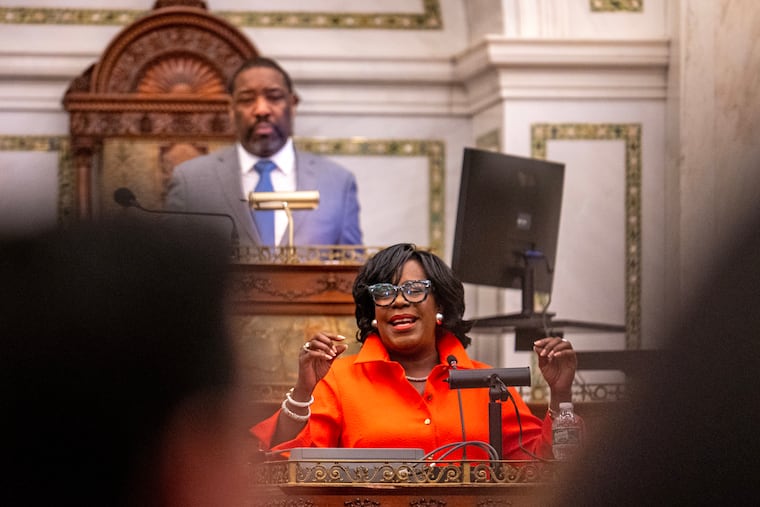Mayor Parker advised to consider potential financial impacts of proposed housing plan.
Mayor Cherelle L. Parker has positioned her ambitious 0 million housing initiative as a hallmark of her first term, aiming to tackle the pressing housing challenges in Philadelphia. The plan has been lauded for its intent but also faces scrutiny regarding its financial implications and potential unintended consequences.
The mayor’s proposal includes an expansion of the Basic Systems Repair Program, which has proven effective in remediating blight and aiding low-income residents in achieving home stability. An additional investment of million is expected to assist households currently on the city’s waiting list. Nevertheless, this expansion raises concerns, as it may extend assistance to households whose incomes exceed current eligibility guidelines significantly. The program could inadvertently provide benefits to families earning close to 5,000 for a household of four, which raises questions about the justification for subsidizing home repairs for higher-income families.
Moreover, the plan outlines funds to support mortgage payments for middle-class households living in luxury developments, with eligibility extending to families earning up to 3,000, and individuals making as much as 0,000. Critics argue that this financial strategy does not align with the initiative’s objective to support those most in need, instead potentially diverting resources to individuals who may not require such assistance.
Additionally, the proposal includes a provision for one-time payments to landlords, aimed at preventing evictions and estimated to cost around million, aiding an anticipated 11,000 households. While the aim of preventing homelessness is noble, critics suggest that the focus should shift towards more sustainable, cost-effective solutions that would not require significant city funds, especially in light of rising borrowing costs associated with housing investments.
To foster a more sustainable housing approach, it is recommended that the mayor collaborates with City Council to address existing zoning restrictions that have been challenging new developments over the past decade. A reconsideration of the property tax abatement, which previously facilitated the construction of approximately 60,000 new housing units over two decades without displacing existing residents, could serve as a valuable tool in promoting new development.
Limiting the property tax abatement to homes priced around the median cost of 5,000 would stimulate construction without disproportionately benefiting wealthier residents.
While Mayor Parker’s housing team is comprised of experienced professionals, the challenge appears to lie within the political dynamics surrounding housing policy. Recent discussions during City Council hearings revealed a desire among some members to set district-specific income eligibility levels for the housing plan, a move that could over-complicate the initiative, delay construction, and ultimately lead to increased housing costs.
City Council’s collaboration with Mayor Parker is crucial to refining the housing plan, simplifying zoning regulations, and exploring revenue-neutral strategies that can effectively promote development while addressing the city’s critical housing needs.
In summary, Mayor Parker’s housing strategy presents a commendable ambition to improve living conditions in Philadelphia, yet it necessitates careful consideration of its financial frameworks and political implications to ensure its success.
Source: Media News Source







